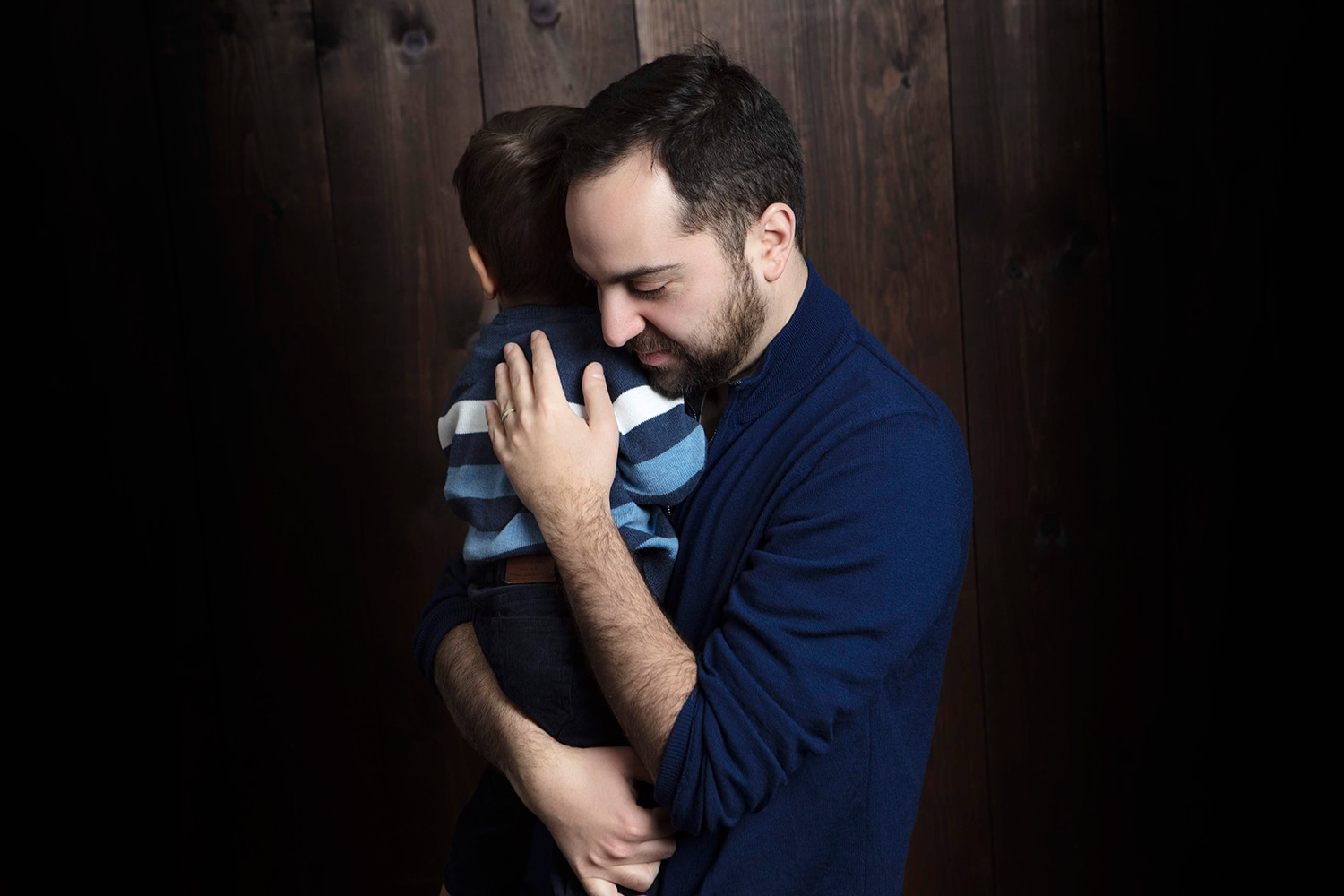IT WAS 8:40 A.M., and I was late for work. With one foot pointed toward the door, I turned and wished my 3-year-old son a good day before leaving him at his preschool. “Daddy, you didn’t give me a hug,” he said. He was right. I leaned down and wrapped my arms around him, frozen in that moment.
When I was first diagnosed with kidney cancer in 2018 at age 33, one of my biggest fears was that my son, who was only 1 at the time, might have no memory of me. If I died before he could remember his life, did his dad ever really exist?
Now as I continue to seek treatment for my metastatic disease, I am keenly aware of how much my son finds comfort in our routines. Recently, he scolded me for not saying “bless you” after he sneezed. But his reliance on the predictable brings new anxieties. In the past, I had three surgeries for my cancer, but he was so young that I didn’t need to explain my absences. Two months ago, as I prepared to receive high-dose interleukin-2 (IL-2) therapy, a highly toxic treatment that requires hospital admission and monitoring, I knew I had to say something.
“Daddy’s going into the hospital to get some medicine,” I explained.
“I’ve had medicine,” he replied. “I don’t like it.”
“Me neither,” I said, pulling him in for a hug. “I’ll see you in a week.”
“What day?” he asked.
“I don’t know exactly. We’ll see.”
“Oh, man,” he muttered, returning his attention to the Paw Patrol figures in his hands as we played together. Eyes welling up, I remember tightly gripping the figure I held in my hand to keep myself in the present moment.
My wife and I have learned to live our lives as though we can outrun cancer forever. In the backs of our minds, we hide away the unimaginable world of widows and children with parents who are no longer alive.
But the questions remain: Will he remember me, only a little, just enough to mythologize me as a giant who used to carry him up the stairs? As my health declines, will he have to learn to adjust to a dad who used to be like all the other dads but then wasn’t? I write pieces like this one as cave drawings that will give insight into who I was, hoping that my son will discover me later, when he’s ready to, if I’m not there to speak for myself.
But of course, there is some chance these preparations will prove unnecessary. As I write this, I’m currently waiting to get results from scans that will show how my cancer is responding to the IL-2 treatment. About 5% of patients with metastatic kidney cancer undergoing this treatment have a complete response and go on to live for years without the disease returning. Of course, 5% isn’t much of a shot. Still, it’s a lottery ticket I had to buy.
With me and my son, the pull is always now. There is the sign-in sheet every day at school. Lunches and water bottles must be placed in their cubbies. With uncertainty all around me, I feel rooted in this familiar routine. His hands reach up to me, reminding me of what I forgot, and we stay, for an extra moment, in that embrace.
Cancer Today magazine is free to cancer patients, survivors and caregivers who live in the U.S. Subscribe here to receive four issues per year.





